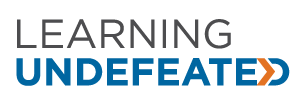By: Anna Mishonova, Maryland Department of Commerce | Read it >
School parking lots in Maryland are usually everything you expect them to be – quiet during the day, with sudden peaks of traffic during pick-up and drop-off times. But since 2003, some lots have become a bit more special thanks to Learning Undefeated – and its one-of-a-kind mobile STEM labs. Dedicated to driving race and gender equity in STEM, the nonprofit visits schools across the country to allow students from underserved communities experience deep-impact learning with the latest technology on board.
Amidst parked cars and stressed parents, Learning Undefeated offers unique traveling lab spaces: for example, middle school students can step into one of three custom-built 22-foot shipping containers (Breakout Box: Body Systems Mission ) to embark on an adventure using computational thinking, science, and engineering practices to crack a series of puzzles.
“They get a chance to experiment with augmented reality, game-based learning, and touchscreen walls—building critical thinking, collaboration, and problem-solving skills in STEM,” says CEO Brian Gaines.
The experience is an exciting, practical scenario, where students analyze and interpret data in a cardiovascular simulation, by selecting food, exercise, and insulin dosage to ultimately help diabetic and non-diabetic patients over time. All this comes with core skill comprehension: students have to analyze and interpret data through manipulating concentration using plasma vials, interpreting graphs, and supporting a claim with reasoning and evidence. Who would have thought a school parking lot could fit all that?
Prior to entering the mobile labs space, Learning Undefeated began its life as the MdBio Foundation, founded in 1991 to enhance Maryland’s nascent life sciences industry and infrastructure. Later, the company expanded its reach by creating education programs to spark students’ interest in science and raise awareness of science careers. This is the organization’s 21st school year, bringing hands-on STEM education to school parking lots, with seven vehicles now in its fleet ranging from trailers to buses to shipping containers.
“All of Learning Undefeated’s programs focus on serving historically underrepresented students in STEM careers, including low-income, female, and minority populations, specifically Black, Latino & American Indian, or Alaska Native,” proudly states Gaines.
Since 2003, the company has prepared over 1.5 million students in the U.S. for STEM careers, including 300,000 in Maryland. The company’s mobile lab and career pathway programs have directly served schools in every county and school district across the state.
The results of such dedication are hard to miss: the participant surveys indicate a significant 400 percent increase in student interest in biotechnology and other STEM careers. More than half of students (58 percent) felt they were prepared for more challenging STEM activities, and just as many (57 percent) wanted to learn more about STEM topics.
But students aren’t the only ones who benefit from Learning Undefeated’s hard work – teachers appreciate it just as much. “In the 2022-2023 school year alone, we have supported over 4,800 educators with professional development and new classroom skills,” said Gaines, “which amplifies the impact of the program long after the mobile laboratory has departed.”
The company’s efforts came in handy, especially during the pandemic. Its team of educators had to adapt quickly, so they developed online tools and resources for an authentic STEM distance learning experience to support all teachers in their online classrooms at no cost. After the restrictions were lifted, the organization adapted its materials to match the new, post-pandemic reality. Today, Learning Undefeated has several programs that include digital and hybrid components as core elements or as a learning extension.
In the future, however, the organization plans to expand its in-person elements across the country. “Learning Undefeated is frequently requested to work alongside community groups to co-develop, deploy, and self-manage their own mobile STEM education programming,” said Gaines. “For example, this month we are launching a project in collaboration with the State of Maine aimed to increase interest in and awareness of bioscience careers in the northeast.”
Another future project Gaines is excited about is Manufacturing Talent Development Pathway, in partnership with the Caterpillar Foundation. The course engages students in a hands-on manufacturing curriculum to highlight in-demand careers and skills, dispel common misconceptions, and introduce manufacturing-related topics. “This shared vision for change is a coordinated approach of reinforcing activities that puts the manufacturing industry and careers front and center,” said Gaines.






